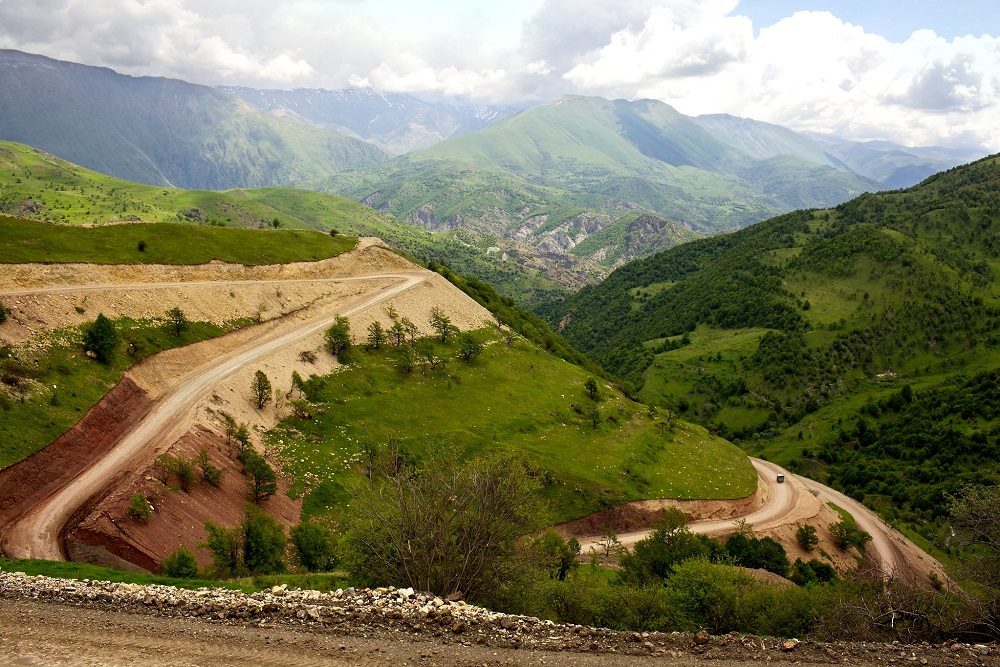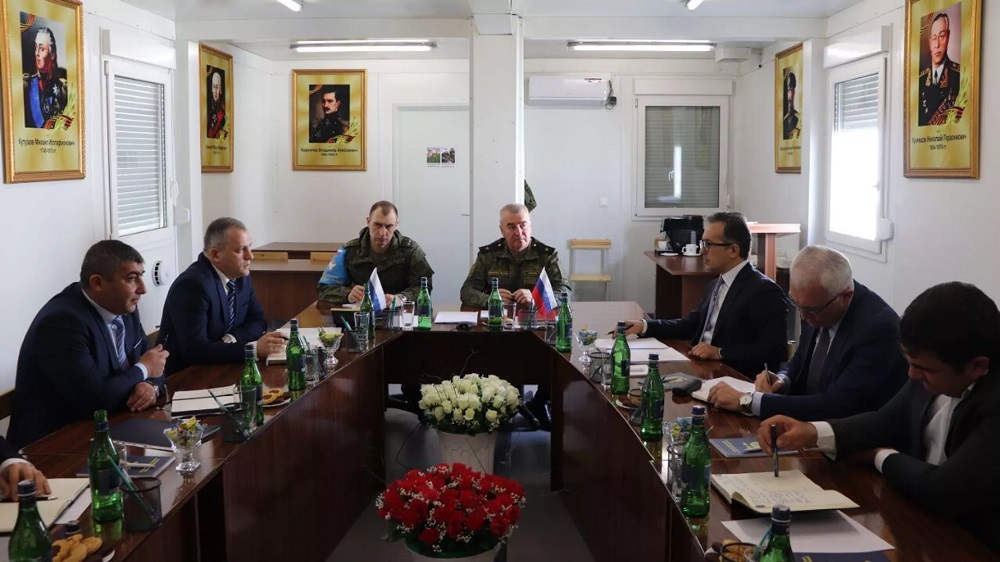What will the exchange of press releases about armed provocations lead to? Comment from Baku
Press release war
Recently, almost daily, sometimes several times a day, the Ministries of Defense of Azerbaijan and Armenia have been reporting skirmishes on the border of the two countries and in the part of Karabakh where Russian peacekeepers are temporarily stationed. According to experts, by doing so the parties are trying to strengthen their arguments at the upcoming talks of foreign ministers in Washington.
Political scientist Farhad Mammadov argues that Azerbaijan can change the status quo in Karabakh, as it did before the May meeting in Washington: at the end of April, a checkpoint was installed on the Lachin road.
- Settlement continues in Lachin, but residents dissatisfied with conditions
- Georgia bypasses Italy and Spain to become main supplier of wine to Russia
- “The document on unblocking roads is almost completely agreed” – Overchuk
“The press releases of the defense departments of Azerbaijan and Armenia report skirmishes on the conditional border and in Karabakh, simultaneously deny each other, and the press services of the Foreign Ministry accuse each other of insincerity and disruption of the negotiation process,” Mammadov says.
According to him, so far the most significant among these skirmishes are a skirmish on a bridge over the Khakari River on the border with wounded soldiers of Azerbaijan and Armenia, and two wounded Indian citizens on the border of Armenia with the Nakhichevan Autonomous Republic.
Background exacerbation
The United States and Russia have moved into open confrontation in a negotiation format, trying to advance their vision:
“The United States with a peace treaty, Russia with the unblocking of communications. At the same time, the United States is trying, through the leadership of Armenia, to minimize the function of Russia in controlling communications on the territory of Armenia; and Russia through assistants Araikov and Co. tries to impede the dialogue of the Armenians of Karabakh with Baku. Let me remind you that this is Pashinyan’s precondition for recognizing the territorial integrity of Azerbaijan.”
Negotiations between the foreign ministers of the two countries in the United States are expected, the Americans are actively preparing a meeting, and Russian Deputy Prime Minister Alexei Overchuk is “stuck in flights between Moscow and Yerevan.”
Mammadov expresses confidence that Azerbaijan and Armenia are trying to strengthen their negotiating positions in this confrontation.
What does Azerbaijan offer?
“Azerbaijan challenges the leadership of Armenia to an honest process: mutual recognition of territorial integrity and non-interference in internal affairs.
Baku officially, through the head of the Foreign Ministry, puts forward its demands / expectations: to use the remaining influence on the Armenians of Karabakh in a constructive way … so to speak, for the last time.
Baku’s proposal to the Armenian side unties the knot of the negotiation process, removes obstacles to the signing of a peace treaty. On the other hand, this step gives the leadership of Armenia a chance to become more subjective in relations with Russia.
After all, the proposal of the leadership of Azerbaijan has time limits. These steps will be taken anyway: Karabakh will be demilitarized.
The Armenian leadership should look a little further… in what form Armenia will emerge from the process: with obligations not to use force on the part of Azerbaijan, with transport communications, or with a potential territorial claim (without a peace treaty, and no unblocking),” the observer notes.
Will there be unilateral actions by Azerbaijan?
Farhad Mammadov argues that the US, like Russia, will soon face the new reality that Azerbaijan will create:
“And they understand it better than Armenia. Therefore, they are accelerating along the way. In parallel, using the inevitable steps of Azerbaijan in the information war with each other (fake from RIA, comment from Zakharova, response from the State Department).
Will there be unilateral actions by Azerbaijan before the US meeting or after? That is the question. And which of the obstacles will be the focus of Azerbaijan’s attention?
As it was with the checkpoint on the road before the meeting in Washington in May.”





















